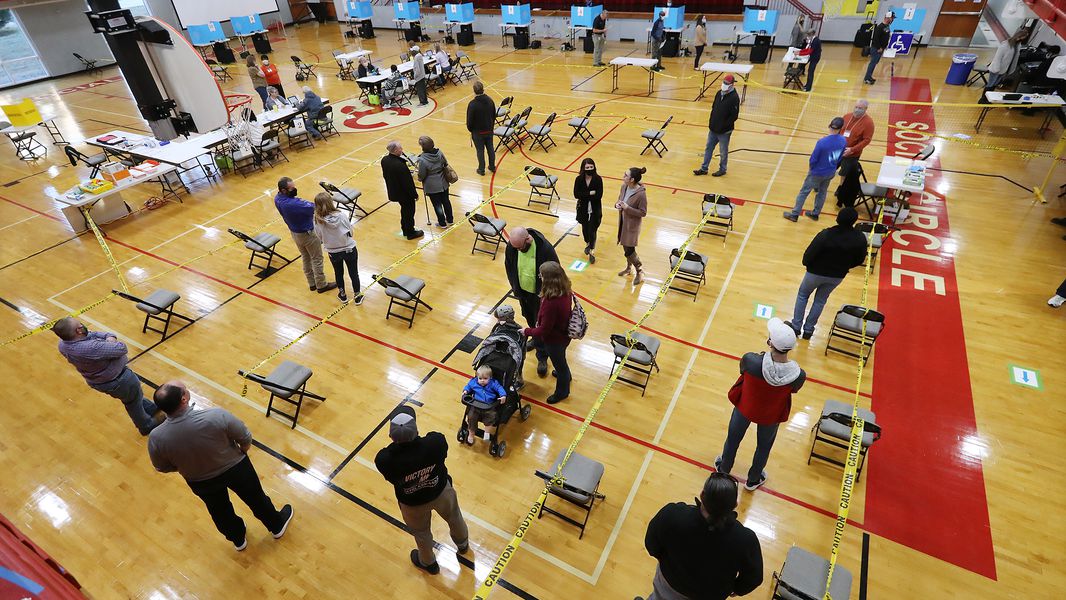
010521 SOCIAL CIRCLE: Voters socially distance while waiting in line to cast their votes in the runoff election inside the gymnasium at Social Circle Middle School on Tuesday, Jan. 5, 2021, in Social Circle. Turnout was heavy at the site where more than 900 voted during the November general election with numbers in the runoff already above 800 with more than 90 minutes remaining before the polls closed. Curtis Compton / [email protected]”
By Mark Niesse
Signature collection law shuts out Libertarians
Georgia’s steep requirements for Libertarian and other third-party candidates to run for Congress are “overbroad,” shutting them out of the political process, a federal judge ruled Monday.
The decision could open U.S. House races to candidates other than Republicans or Democrats.
Under a 1943 state law, no third-party House candidate in Georgia has ever collected enough signatures to appear on the ballot. The law requires third-party candidates to submit a petition signed by at least 5% of registered voters — over 19,700 signatures.
Georgia voters deserve a choice besides the two major parties, said Bryan Sells, an attorney for the plaintiffs.
“This ruling is going to wake people up,” Sells said. “You’re going to see a lot of candidates coming out of the woodwork to try to get on the ballot.”
U.S. District Judge Leigh Martin May ruled that Georgia’s ballot access barriers are onerous, violating the First and 14th Amendments of the U.S. Constitution.
“Even reasonably diligent political-body candidates who have expended considerable time and resources have failed to access Georgia’s ballots,” according to May’s order.
The Libertarian Party would have needed to collect nearly 322,000 signatures and pay $73,080 in qualifying fees to run a full slate of candidates for Georgia’s 14 House districts in 2020, May wrote.
Fielding third-party candidates for statewide elected offices is easier than for Congress. Statewide candidates must submit a petition signed by 1% of registered voters.
Candidates nominated by the Republican and Democratic parties automatically appear on the ballot. The decision could bring competition, including in House districts such as those represented by U.S. Rep. Marjorie Taylor Greene, said Libertarian Party Chairman Ryan Graham. Greene, an outspoken freshman Republican, divided her North Georgia constituents.
“We could have had a candidate on the ballot had it not been for these petitioning requirements,” Graham said. “Hopefully the ruling will give Georgians more options about who to vote for, whether it’s Libertarians or other third parties.”
The office of Secretary of State Brad Raffensperger, the defendant in the case, didn’t immediately respond to a request for comment.
The plaintiffs must submit a proposal for a lower signature requirement within 21 days. Then the judge will issue a ruling on how many signatures third-party candidates must collect to appear on the ballot in future elections.
Read the original story on AJC.com.











